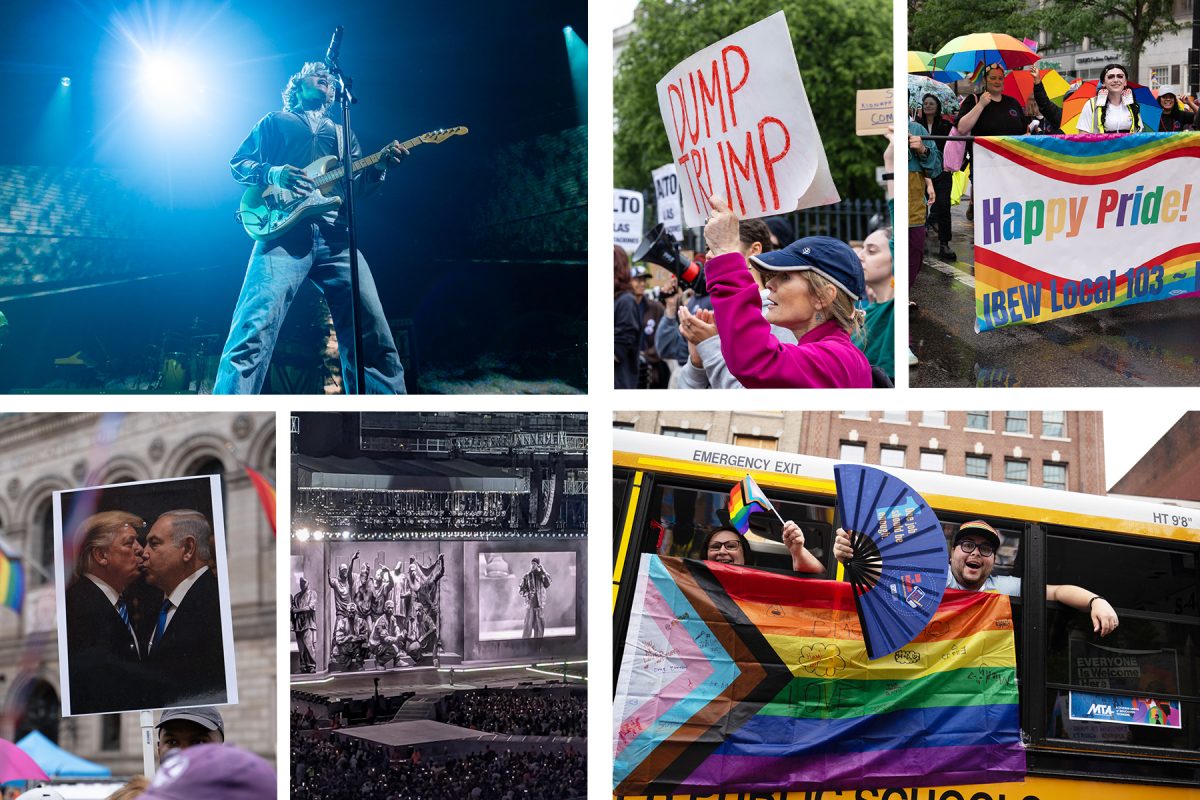Column: How Trump’s rhetoric has embedded itself into American culture
January 31, 2018
After the 2016 election, our world seemed to change overnight. “Controversy” became an overused term when discussing any issue, whether on news broadcasts, in newspaper articles or on social media. Now, people frequently talk about “division” and “our current political climate.” Public scandals are extremely well-known and debated. Exposure to the news and current events seems inevitable.
With all of these events, opinions and facts hurdling at us at what feels like light speed, how much information is too much? And have all the public scandals and divisive remarks desensitized us to the significance of these events?
These were the thoughts rolling through my head as I sat in the Chipotle in Fenway. On the window there was an ad for Chipotle’s new queso dip, reading “We’ve got Queso. Not fake news.” I initially laughed at the advertisement, but then stopped to wonder when “fake news” became such an accepted, well-known and almost comical phrase.
President Donald J. Trump first used the term “fake news” on Dec. 10, 2016, in reference to CNN’s report that he would continue to work on “The Apprentice” once in office. Since that day, Trump has tweeted the words “fake news” 162 times.
At first, most people reacted to Trump’s use of this phrase with disbelief and anger. The public, especially journalists, worried that Trump’s attacks on the media would reduce the media’s credibility and hinder free speech.
However, in the past year, “fake news” has become something else entirely. It has become a slang term used in casual, everyday conversation and on social media. It has been used in ads, comedy skits and Trump’s “Fake News Awards,” which were announced on Twitter Jan. 17.
“Fake news” is just one of the ways Trump’s unique rhetoric has made its way into American pop culture. At the 2018 Grammys Sunday night, 2016 presidential candidate Hillary Clinton made a surprise appearance in a comedy skit. In the sketch, Clinton read an excerpt from Michael Wolff’s “Fire and Fury,” a book about Trump’s presidential campaign and early presidency.
While, at first glance, this may seem like a harmless gag to get laughs or possibly an attempt to make a political statement, it seems to me that the Chipotle ad and the “Fire and Fury” sketch at the Grammys are perfect examples of how desensitized we have become to the constant controversies that surround us.
Every time I start to comprehend a new scandal from the Trump administration, it seems that another one is breaking. A little over a week after Trump’s explicit comments about immigrants from El Salvador, Haiti and African countries, the Stormy Daniels story broke Jan. 19. Three years ago, two scandals of this magnitude in two weeks would have caused national outrage and extensive media coverage. However, it seems that we have already moved on.
So how do we combat this trend of allowing these scandals and controversies to become commonplace? I think our most important task is to keep reading the news, no matter how overwhelming or unbelievable some stories may seem. Stay educated on current issues and their repercussions, and support the organizations that continue to report these stories time and time again.






